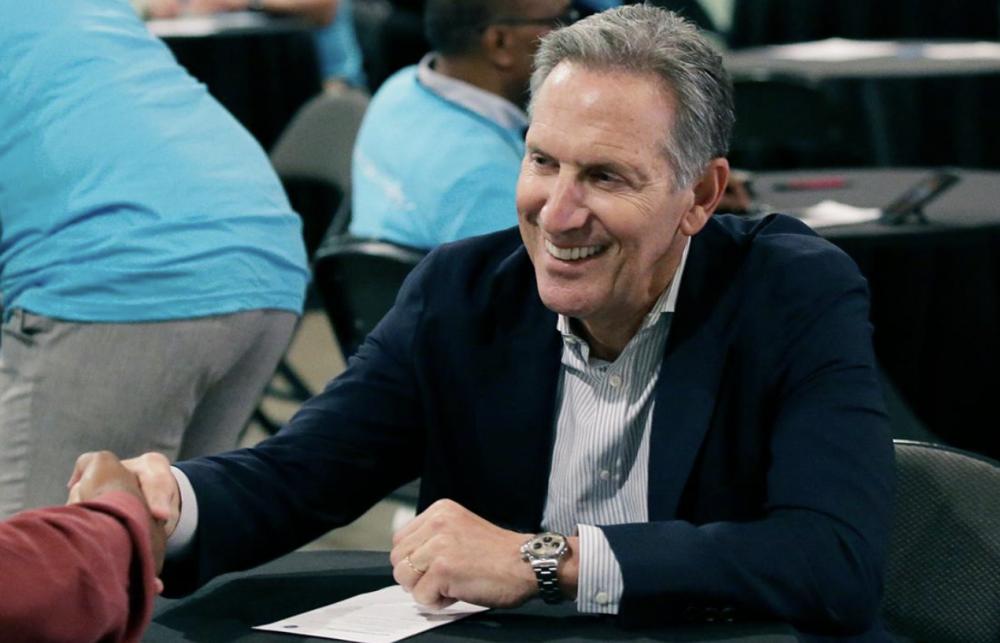Choice! It is simply hard to fathom a richly layered life without it. I can imagine some would enjoy always having to choose from no more than two alternatives, but not me.
Indeed we have laws that lean hard against monopoly (a single provider), duopoly (two providers), and at times even an oligopoly (concentrated power). The legal term is antitrust, the underlying philosophy recognizes the constricting if not predatory nature of not having a choice. Quality suffers. Prices are too high. Often service must be regulated. Plus, trying to reach somebody to help puts us in dial-around hell.
So how do we tolerate laws that narrow one of our most important choices: elected leaders? In important ways, laws, written and unwritten, circumscribe choice right down to how many can appear in Presidential debates, an essential gate to viability.
Since most of today’s political noise surrounds the 2020 election for President, I will concentrate my distaste. Let me begin with political Party ideology which so presses in on candidates they can barely think or have a reason to do so. The base, left and right, funded and stirred by special interests, often dictates the script. Is there, for example, a candidate who is both pro-choice on the issue of abortion and quite conservative when it comes to budget deficits?
Ideology is a French word and its origins date to 1796. Perhaps the most colorful disdain for the term and its implications date to an exchange between John Adams and Thomas Jefferson. About ideology Adams asked: “Does it mean Idiotism? The Science of Non compos menticism? The Science of Lunacy? The Theory of Delirium? Or does it mean the Science of Self Love?”
My take: it is frequently the science of thoughtlessness. Ideologists are relieved of having to think, as somebody else has written the script. In a world where Google allows almost infinite searching for an answer, our political leaders are relegated to a search algorithm that is mostly featured in children’s books.
What then are we to think when presented with two choices to be President and learn neither of them thinks? They are even relieved from having to provide context for their ideological answers to questions about life, debt, health, security and the like because there are marketing people who do that.
With those thoughts in mind, I watched Howard Schultz last week fielding questions at a televised Town Hall meeting in Kansas City.
Voila, Howard Schultz thinks. And he carries the confidence of accomplishment; he was, among other things, prepared to admit error. When talking about Starbucks, the company he founded, he was particularly passionate about employee health, education and retirement benefits which are available to full and part- time employees (called Partners).
The Town Hall hosts, showing conventional skepticism, asked how he could possibly win since if he runs it will be as a Third Party candidate. Schultz, displaying a confident tone, talked about the rigidity in the two Parties; he believes left/right ideology will result in much more passionate centrist voters from both Parties. We’ll see.
But, from my standpoint sign me up, I want choice. Division now organizes our collective lives and that must end.
Finally a further word on Presidential Debates. There is an organization called the Commission on Presidential Debates (CPD); it is one of those centers of power that most people do not know about. The Commission of twelve persons decides the criteria a candidate must meet to qualify. In order to appear on the debate stage, a third Party candidate must poll, nationally, 15%. The polls are conducted post-Labor Day.
By the Fall of any given Presidential election year, Independents, sensing that one of the two major Party candidates will win, begin to voice their support for the least objectionable. After all, by then, the advertising channels are filled with advertisements for the two candidates who enjoy overwhelming financial advantage.
Criteria for 2020 have not been published. Using the same 5-poll arrangement, the CPD should include the third Party candidate with the most support thus assuring a three-way debate. This simple shift would tell the universe of voters who register as Independents that they have a role to play. The result would be catalytic, both during the campaign and the debates. Independents would be given a voice and candidates would be forced to think.
Al Sikes is the former Chair of the Federal Communications Commission under George H.W. Bush. Al recently published Culture Leads Leaders Follow published by Koehler Books.



Write a Letter to the Editor on this Article
We encourage readers to offer their point of view on this article by submitting the following form. Editing is sometimes necessary and is done at the discretion of the editorial staff.